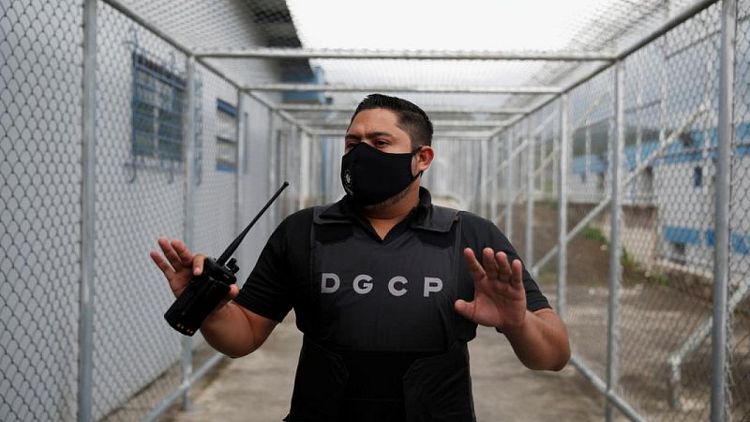WASHINGTON - The United States on Wednesday imposed sanctions on dozens of individuals and entities across Europe and the Western Hemisphere, targeting El Salvador officials over alleged negotiations with the MS-13 gang and an organized crime group based in northern Kosovo.
The U.S. Treasury Department said Wednesday's action, the latest in a series of sanctions announcements marking the week of President Joe Biden's democracy summit, targeted corruption networks linked to transnational crime through the designation of 16 individuals and 24 entities.
Secretary of State Antony Blinken said gangs that operate across borders were "destabilizing" and often collude with government officials.
"We also know that organized crime backed by corrupt actors can destabilize rule of law, erode confidence in public institutions, and weaken democratic governance," Blinken said in a statement.
The Treasury said it slapped sanctions on Osiris Luna Meza, the chief of the Salvadoran Penal System and Vice Minister of Justice and Public Security, and Carlos Amilcar Marroquin Chica, Chairman of the Social Fabric Reconstruction Unit.
It accused the officials of leading, facilitating and organizing a number of secret meetings involving incarcerated gang leaders as part of El Salvador's efforts to "negotiate a secret truce with gang leadership."
"An investigation into officials of the Government of El Salvador and incarcerated leaders of gangs, such as Treasury-designated Mara Salvatrucha 13 (MS-13), has revealed covert negotiations between government officials and the criminal organization," the Treasury said in the statement.
Also blacklisted were Kosovan gang leader Zvonko Veselinovic and his brother, who the Treasury accused of having agreements with politicians to help their party win elections and contribute money to the candidates.
In return, the politicians would grant the brothers the best infrastructure contracts, provide proprietary business information to support their investments and grant them control of certain areas for their businesses, the Treasury said.
